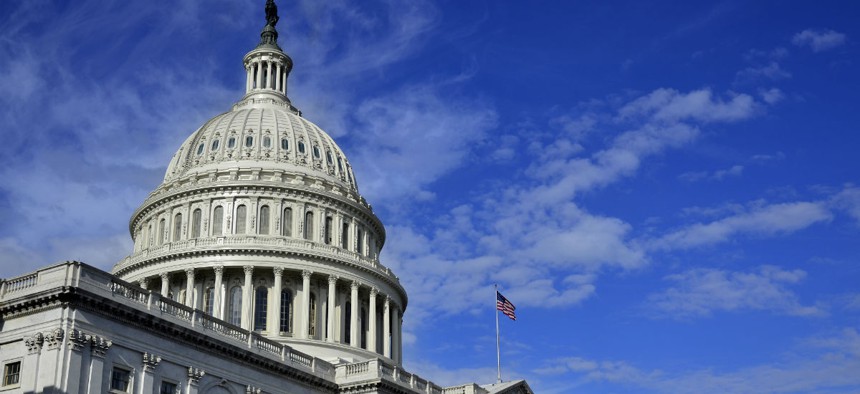
By Lane V. Erickson / Shutterstock.com
2.6 Percent Pay Raise Bill Passes House, Shutdown-Related TSP Withdrawals Exceed $140M, and More
A weekly round-up of pay and benefits news.
The House voted 259-161 Wednesday to approve a bill that would provide pay parity between the federal civilian and military workforces by authorizing a 2.6 percent pay raise for 2019, retroactive to Jan. 1. A companion bill was introduced in the Senate on Tuesday.
Federal employee groups quickly applauded the measure’s passage.
“This increase is not just appropriate but it is overdue,” said Tony Reardon, national president of the National Treasury Employees Union. “Today, the House soundly rejected the president’s pay freeze, provided parity with the military and helped federal employees keep up with the rising costs of health care, housing and other daily living expenses.”
“This modest 2.6 percent pay raise is in line with the pay raise provided to uniformed service members this year and is not to be mistaken for amends from the recent shutdown,” said Ken Thomas, national president of the National Active and Retired Federal Employees Association. “Desperately needed after 35 dysfunctional days and a third shutdown in a year, it ensures that federal employee pay rates remain competitive with the private sector so that our government can recruit and retain a well-qualified and high-performing workforce.”
Even if the measure with the 2.6 percent raise fails to advance further, it is likely federal employees will receive some form of pay raise for this year. Aides on Capitol Hill told Government Executive that a 1.9 percent pay raise is likely to be included in an appropriations package to fund agencies operating under a continuing resolution through Feb. 15.
In the Senate, Minority Leader Chuck Schumer said Tuesday that Democrats would continue to push for legislation to protect federal workers from foreclosures, evictions and loan defaults during government shutdowns. The Federal Employee Civil Relief Act (S. 72), introduced earlier this month by Sen. Brian Schatz, D-Hawaii, would suspend the enforcement of civil penalties related to falling behind on bills until 30 days after the end of a lapse in appropriations.
“The individual costs of the Trump shutdown are even harder and more moving than the overall big numbers,” Schumer said at a press conference. “Many federal workers have missed doctors’ payments or fallen behind on paying bills when they missed two paychecks, and many still don’t know when they’ll get their back pay . . . I also support Sen. Schatz’s efforts to ensure financial protections for federal workers so they won’t be evicted, foreclosed on, or have their car or other property repossessed.”
In a sign of the financial hardships facing federal employees during the partial shutdown, the Thrift Savings Plan reported that workers raided their 401(k)-style retirement savings accounts for more than $140 million.
On Monday, TSP officials reported that the number of hardship withdrawals taken by TSP participants during the lapse in appropriations was up 26 percent over the same period last year, and loans increased 5 percent. TSP spokeswoman Kim Weaver provided an update on that statistic Tuesday with the total financial impact of the withdrawals.
During the shutdown, TSP officials processed 12,204 hardship withdrawals, in which participants withdraw money from their account minus a 10-percent tax penalty, for a total of $143.9 million. During the same time period last year, the TSP processed 10,225 hardship withdrawals, totaling $124.1 million.







